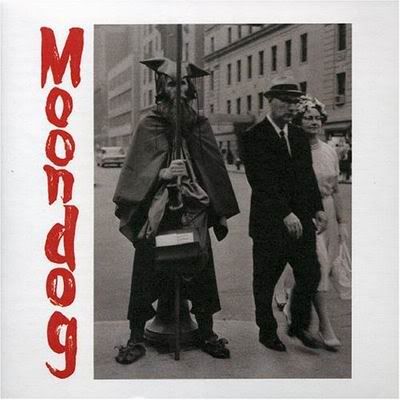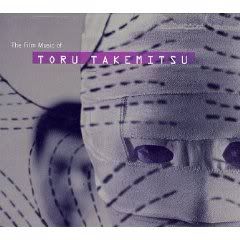A review of the film Mother and Son
by Aleksandr Sokurov.
A FRIEND of mine invited me to attend an advance screen of a Russian film in Soho. I asked him what it was like and he said, "Well, nothing really happens and then someone dies. Come along. You'll love it." My friend was releasing the film in this country, so I felt obliged. Sitting through a Russian film is the kind of thing friends do for each other.
I arrived late and made my way to the front row just as the opening credits were ending. Ten minutes in, I started quietly crying and continued to do so for the 73-minute duration of the film. Now, I've cried in films before but I can't remember crying quite so hard, without pause, all the way through. When the film ended and the lights came on, a red-eyed woman sitting behind me pushed a Kleenex in my direction and asked me if I would write something about it for one of the newspapers.
The film is called Mother and Son, and is directed by Aleksandr Sokurov. It explores the final day in the life of a dying mother (Gudrun Geyer) and her adult son (Alexei Anaishnov). It is morning. The mother wants the son to take her for a "walk", which involves carrying her through a series of dreamlike landscapes, whereupon he returns to their bare, isolated home, feeds her, and puts her to bed. The son then leaves the house to walk on his own and returns to find that she has died. All this takes 76 minutes. But what we witness in that time is a thing of such beauty, such sadness, that to cry, for me, was the only adequate response.
Mother and Son is a film about Death and about Love and about Grace. the love, between a mother and her son, transcends ordinary love in that it is purified by the imminence of death. Death awaits them both with absolute certainty: the mother who will die, the son who will be left alone. Time seems respectfully to have slowed to a pace at which the careful motion of love has room to play itself through: no action is rushed, for that would simply hurry death on. The characters have achieved a state of emotional and spiritual grace. They seem cut adrift from their histories, alien to their environment, and unaffected by the world beyond their own. all that exists are gestures of comfort, of care, of tenderness. The son brushes the mother's hair, wraps her blanket more tightly around her, feeds her with a teated bottle. The mother responds with strokes and caresses: all that her failing strength will allow.
It is a relationship, in a sense, that is not meant to be seen. It is sacred, religious, uncomplicated by any prurient intrusions of 20th-century analysis. It is a view of humanity that has truly become transcendent; yet Sokurov makes no bones about the tragic nature of death. Death hangs heavy over everything, saddening each gesture, weighing down each action. Even the landscape appears to be in mourning for the mother's imminent demise. here we see the Passion, shown in tableaux, occasionally reflecting the Christ story: the Passion not of the ailing mother but of the son, not of the dying but of the one who is left behind.
The dialogue, too, seems strangely ineffectual, as if the protagonists' love and understanding has rendered language unnecessary. When they do converse, their words seem to lack any true purpose. They neither comfort or clarify, for all is said in the knowledge that exists within each gesture. There is psychology in words, there is complication and pain. This is no better evinced than in their final conversation, in which they discuss reasons to die and reasons to live. The dialogue is futile and cruel, and serves only to reopen the feelings of grief.
Says the mother: "It's so sad. Anyway, you will still have to go through all that I have suffered."
"Have a little nap, mother," says the son. "Have a sleep, I will be back soon."
The son leaves the house and moves into the exquisite landscape that surrounds it. It is in these long, lingering, nearly motionless scenes that the film rises to heights of the most breathtaking beauty. Sokurov's landscapes are not burdened by any desire for realism. His scenes are transformed into cinematic canvases, far closer to painting than to film, awash with artificial, opalescent light. These dream-born vistas recall the work of the German Romantic painters of the early 19th century: in particular those of Caspar David Friedrich, in which everything is softened by a milky lustre. The vastness and mystery of this heightened nature creates a spirituality not dependent on any formula of traditional Christianity. And the care Sokurov applies to these fastidiously crafted scenes echoes the care with which his characters treat each other - the devotion to detail, the unhurried tenderness, the love.
All of this beauty is given a pace, a timescale dictated by the encroachment of death. Each piec of action, each gesture - slow, plangent, important, sacred - allows the viewer the time to fall under its spell and to be seduced by its powerful and very serious impulses. Watching this film, we are forced to confront the inevitability of our own mortality, and the mortality of others. Emotiona are awakened within us of a sort that cinema hasn't dealt with for a long time.
My inital response to this film was to shed tears for the sadness of things. And its unique pulse has reverberated through me ever since.
Tuesday, June 30, 2009
Sunday, June 28, 2009
Marco Brambilla
Civilization, a video mural created for the new Standard hotel in New York City, depicts a journey from hell to heaven interpreted through modern film language using computer-enhanced found footage. This epic video mural contains over 300 individual channels of looped video blended into a multi-layered seamless tableau of interconnecting images that illustrate a contemporary, satirical take on the concepts of Heaven and Hell. - youtube
FULL SCREEN HQ, AMAZING, AGAIN, THANKS JOE
Friday, June 26, 2009
The Beatles: Rock Band intro (Cinematic Trailer - Animated Promo)
Literally brought tears to my girlfriends eyes.
THANKS JOE
Thursday, June 25, 2009
Tuesday, June 23, 2009
Sunday, June 21, 2009
Saturday, June 20, 2009
Thursday, June 18, 2009
Tuesday, June 16, 2009
"Augmented-reality"
"As yet unseen footage of the first stable version of levelHead, an augmented-reality spatial-memory game by Julian Oliver."
Sunday, June 14, 2009
Thursday, June 4, 2009
Moondog

A very profound 1:44
From Wiki-----
Moondog was the pseudonym of Louis Thomas Hardin (May 26, 1916 – September 8, 1999), a blind American composer, musician, cosmologist, poet, and inventor of several musical instruments. Although these achievements would have been considered extraordinary for any blind person, Moondog further removed himself from society through his decision to make his home on the streets of New York for approximately twenty of the thirty years he spent in the city. The public began to appreciate the extent of Moondog's talents only in the final decades of Moondog's life, primarily because of his stubborn refusal to wear anything other than his own home-made clothes,[citation needed] all based on his own interpretation of the Norse god Thor. Indeed, he was known for much of his life as "The Viking of 6th Avenue".[1]
Tuesday, June 2, 2009
Toru Takemitsu Film Music

Many nights this song floats in my head - its quite a nice feeling
"The art music of the West has developed through out its history by means of individual geniuses, and out of the soil supporting them; non-Western musicians were born, and grew like the grasses of the field. "
"I always want to write erotic music... Not only about the love between men and women, but in a much more universal sense - about the sensuality of the mechanism of the universe... about life."
Subscribe to:
Comments (Atom)